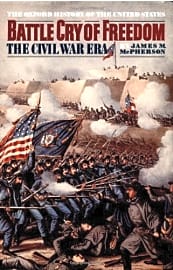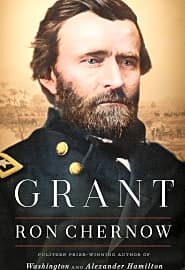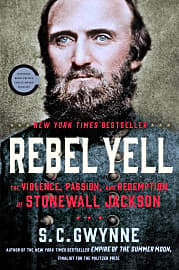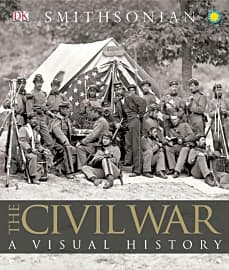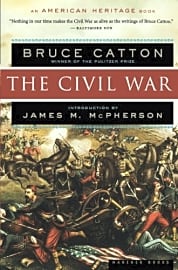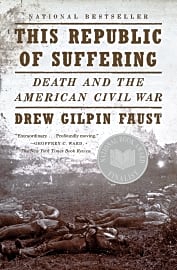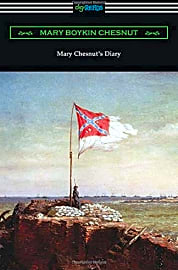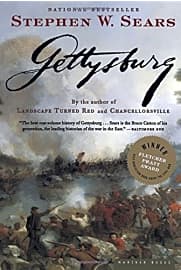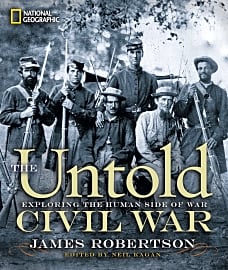The 10 Best Civil War Books

This wiki has been updated 37 times since it was first published in August of 2015. Covering one of the most important periods in American history, these Civil War books run the gamut from academic tomes to exciting narratives and insightful first-hand accounts. If you think you know everything there is to know about this conflict, think again -- we guarantee that more than one of these selections contain something new for you. When users buy our independently chosen editorial picks, we may earn commissions to help fund the Wiki.
Editor's Notes
January 16, 2020:
Like any good war history book, the Civil War books on this list take a deep dive not only into the untold horrors of warfare, but also the perspectives, personalities, and motivations behind it, as well as the ramifications. We wanted to include a variety of volumes to appeal to many different tastes.
Those who appreciate a solid overview will find much to like about the Civil War Volumes Box Set and The Civil War, while people looking to learn more about the events that led up to those bloody four years will find Battle Cry of Freedom hard to put down. We included detailed profiles of important figures from both the Union and Confederacy with Ron Chernow's Grant and Rebel Yell and selected This Republic of Suffering to help those who want to understand the aftermath of such a giant loss of life.
While we think a volume like Living Hell is vital for people to receive a sober account of the atrocities of war without the glorification, its factual inaccuracies and convoluted writing led to its removal. Since we recognized there were no dedicated civilian accounts included in our selection, we added Mary Chesnut's Diary. Mary Boykin Chesnut had a keen eye for detail, which, combined with her upper-class status and insights into significant moments makes for a compelling read. Rather than just jot down the days' events, Mrs. Chestnut creates an atmosphere, sets a tone, and provides entertaining commentary. Naturally, her account cannot fully speak to the experiences of slaves, Northerners, foot soldiers, and so on, so the reader must crack this one open with an intention to research other perspectives as well.
The Timeless Allure Of Civil War Literature
Thus the perennial popularity of books about the Civil War.
The Civil War ranks as the deadliest conflict in which American soldiers ever engaged, and with any luck will remain as such. (Indeed almost half of all American soldiers who have been killed in any way died during that four year charnel house: an estimated 620,000 people lost their lives as a direct result of combat between the years 1861 and 1865.) Many factors contributed to the horrid death toll of the war, including the fact that in so many ways it was the first modern war.
The Civil War was one of the first conflicts in which rail travel, industrialized arms production, telegraph communications, and photography played a role. Certainly the images we still have from the war years have helped to humanize the face of battle; the long lasting effects of the war have also helped to cement interest in the Civil War in the minds of many ever since. Thus the perennial popularity of books about the Civil War.
There are several broad categories of Civil War book, and the varied types warrant examination. One of the most popular categories of these books tells much of the tale of the larger war by focusing on the life and experiences of a single person. Abraham Lincoln, Ulysses S. Grant, and Robert E. Lee are some of the most common examples of this type of book, which is usually not quite a biography, but more of a study. And while these best known characters certainly merit close and continued examination, some of the most thrilling works written about people of the Civil War era focus on lesser known individuals who, nonetheless, played a part in the struggle. By revealing the exploits and accomplishments of non-famous contemporaries, one can often gain a new perspective on issues previously thought to be understood.
Yet another distinct type of Civil War book takes a very narrow focus, looking at a single year, a single battle, or a single city in great detail. By carefully examining a short period of time, a limited number of events, or a single geographical area, a talented writer can reveal a microcosm of the Civil War years that is in fact illustrative of much of the larger conflict.
Books filled with photographs are yet another category that merits mention. When one sees the images of corpses lying slain, or the hardened eyes of young men made old by savagery, the modern reader can connect more directly with the bygone history. While a book of pictures cannot provide as much knowledge as a book of text, it can at times provide more context.
Finally there are books that use more of a survey approach to the Civil War, trying to cover all the major events and usually doing so in chronological order. Read on their own, these books do not offer much substance that can help inform a deeper understanding. But used as a primer prior to deeper reading, they are absolutely of value.
The Civil War Book As A Gift
Giving someone a book they love is one of the best possible gifts you can give. It shows that you understand their interests and that you encourage their passion for reading and knowledge. Unfortunately, it's much easier to give someone the wrong book than the right one.
If you're going to give someone a book about the Civil War, you should first know their political leanings. As amazing as it is to realize, this conflict that ended more than 150 years ago is still a highly polarizing topic for some people, and tempers can flair on both sides of the battle lines, as it were.
Assuming you have a level headed person on your gift list, try to consider the type of reading they like to do.
Assuming you have a level headed person on your gift list, try to consider the type of reading they like to do. For indeed there are Civil War books that take a decidedly lighthearted approach to the topic, discussing some of the curiosities of the era such as secret weapons (that largely went no where), unique and eccentric personalities (consider the exploits of Elmer E. Ellsworth, the dashing officer who is considered to be the first Union casualty of the war), or the anecdotes that bring the war and times to life (such as the fact that three members of the same family were killed while riding atop the same horse).
As a corporate gift, a large coffee table style of Civil War book can be a great choice. Consider a book filled with rich images that might make a fine addition to an office's side table or to the lobby of a law practice, for example.
And finally just try to figure out where someone's specific Civil War interests lie. If you know he or she is a serious Civil War buff who is already well versed in the major battles, find a biography of a lesser known individual. If the person's interest is just beginning, then select a book that features on a must-know facet of the war, such as a volume covering the Battle of Gettysburg.
Why The Civil War Still Merits Much Study
The Civil War will always be relevant in terms of its massive impact on American history, but its effects can be felt in so many ways beyond a mere understanding of the course of events.
The end of the Civil War largely marked the end of America's agrarian age, with more people settling in cities than ever before.
One of the largest effects the war had on the nation was to bring about changes to the country's laws. Without the Civil War, the United States of America may never have passed legislation like the landmark 13th and 14th Amendments to the constitution, for example.
The Civil War was also responsible for one of the largest internal migrations in recent history. After the war was over, tens of thousands of people relocated to new regions of the country and took on new roles in life. The end of the Civil War largely marked the end of America's agrarian age, with more people settling in cities than ever before.
This shift changed the racial makeup of the country as well as the types of jobs people worked, bringing new diversity and industry to many areas, but also unsettling the order in others. The ramifications of these changes can still be marked today; yet another reason the conflict is still relevant.


